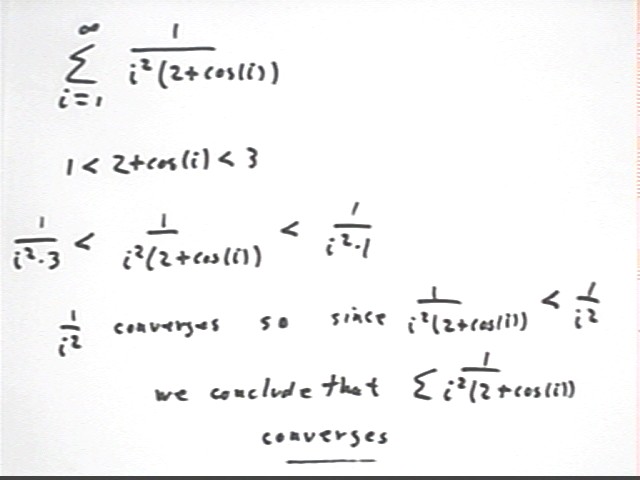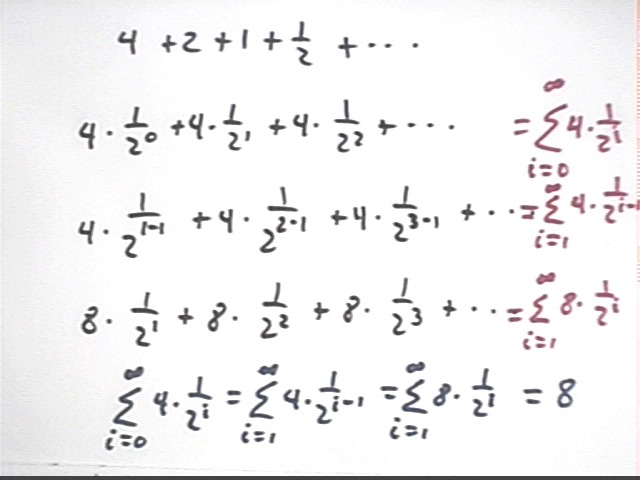
Calculus II Class 03/14
The series 4 + 2 + 1 + 1/2 + ... converges to 8, as we have seen.
This series can be factored as 4 ( 1 / 2^0 + 1 / 2^1 + 1 / 2^2 + ... ) and therefore written as
Alternatively we can let i run from 1 to infinity and let the power of 1 / 2 be i - 1, so that the powers still run from 0 to infinity. We can therefore write the sequence in a second form as
Finally we can write the series as 4 + 2 + 1 + 1/2 + ... = 8 ( 1 / 2^1 + 1 / 2^2 + 1 / 2^3 + ... ) or
You should understand the how these three expressions for the series 4 + 2 + 1 + 1/2 + ... are related.

Now consider the sum 8 * 1 / 2^1 + 8 * 2 / 2^2 + 8 * 3 / 2^3 + ... . We wish to determine whether this sequence converges or diverges.
If the sequence somehow acts, at least beyond some point, like a geometric sequence then we can guarantee its convergence.
For the present series, a(n+1) = 8 ( n+1) / 2^(n+1), and a(n) = 8 n / 2^n.
In general as long as the limit of | a(n+1) / a(n) | is less than 1, the series must converge.
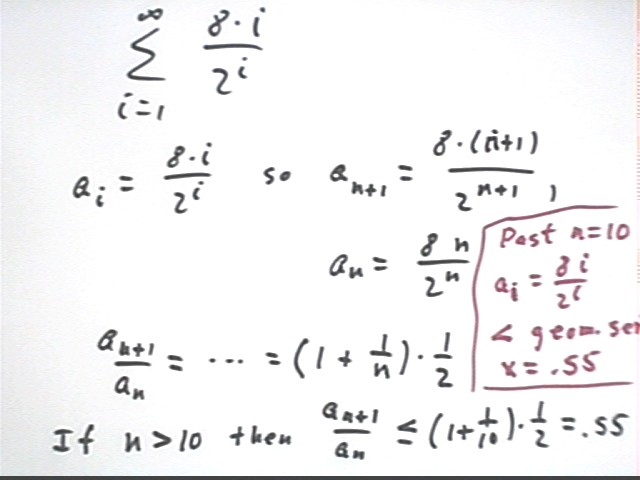
The series 1/1^2 + 1/2^2 + 1/3^2 + ... = sum(1 / i^2, i from 1 to infinity) can be shown to converge if we compare it to the integral from 1 to infinity of 1 / x^2.
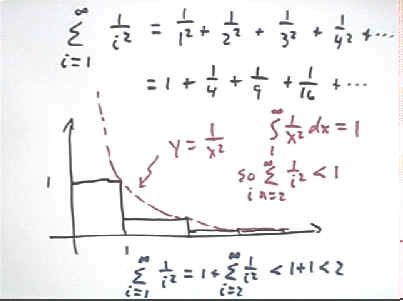
On the contrary the series 1 + 1/2 + 1/3 + 1/4 + ... can be shown to diverge:
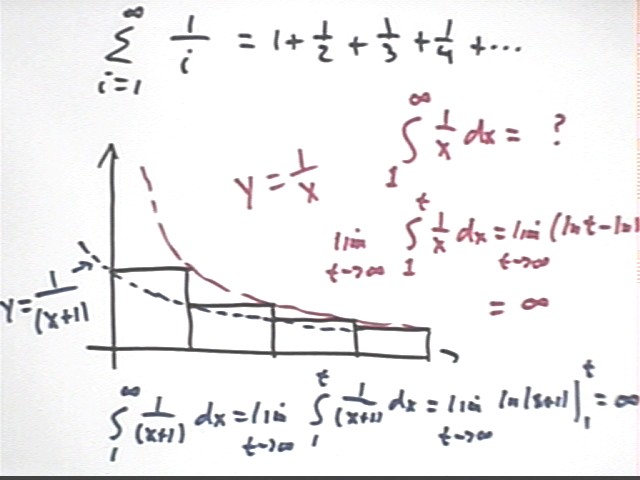
Consider the function 1 / x^1.01. Its antiderivative is -100 / x^.01. Because there is a positive power in the denominator, this antiderivative approaches zero as x -> infinity and the integral of 1 / x^1.01 from 1 to infinity converges.
We already saw above that the corresponding integral of 1 / x^1, with antiderivative ln x, diverges.
For if p > 1 the integral converges, if p = 1 the integral diverges. What happens if p < 1?
For example if p = .999 our function is 1 / x^.999 and its antiderivative is 1000 x^.001. This antiderivative, with a positive power of x now in the numerator, approaches infinity as x -> infinity, causing the integral of 1 / x^.999 to diverge on the interval [1, infinity).
We therefore conjecture that
We can establish this result in more general terms:
Since an antiderivative of 1 / x^p is - 1 / [ (p-1) x^(p-1)], which when p > 1 is a negative power of x and when p < 1 is a positive power of x, we conclude that the integral from x = 1 to infinity of 1 / x^p converges for p > 1 and diverges for p < 1. We have already seen that when p = 1 the integral diverges.
It follows by the comparisons we have already seen that the sum from i = 1 to infinity of 1 / i^p converges for p > 1 and diverges for p < 1.
This result is quoted in the top half of the figure below.

This result is quoted in the top half of the figure below.
In the figure below we attempt a ratio test on the series sum(1 / i^2, i from 1 to infinity). Recall that we just showed this series to be convergent.
We know that for some series a ratio limit of 1 indicates divergence (e.g., for the seris 1 + 1 + 1 + 1 + ... the limiting ratio is 1 but the series clearly diverges). However here we have an example of a convergent series for which the limit of the ratio is 1.
This shows that a series with limiting ratio 1 can converge or diverge, and that limiting ratio 1 therefore tells us nothing one way or the other about convergence.
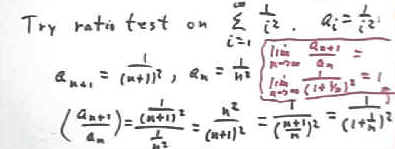
As shown below a ratio test on the series sum(1 / i, i from 1 to infinity), shown before to be divergent, gives us limiting ratio 1.
This example further illustrates that limiting ratio 1 is inconclusive regarding the convergence of a series.
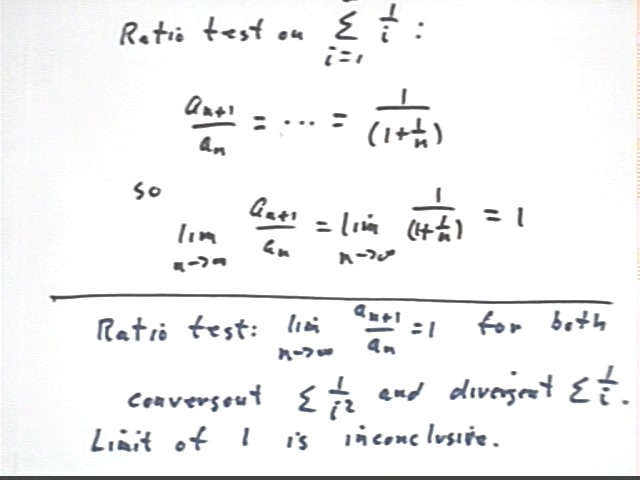
We apply our knowledge that the series defined by 1 / i^2 converges to show that the series defined by 1 / [ i^2 ( 2 + cos(i) ] must also converge.
We first note that this new sequence has 1 / i^2 as a factor, also containing 2 + cos(i) as a factor of its denominator.
We consider this factor 2 + cos(i). How big or how small can it be?
Now since the sequence defined by 1 / i^2 converges, and since every term of 1 / (i^2 ( 2 + cos(i) ) of the new sequence has been shown to be less than the corresponding term 1 / i^2 of the convergent sequence, it follows that the new sequence is also convergent.
